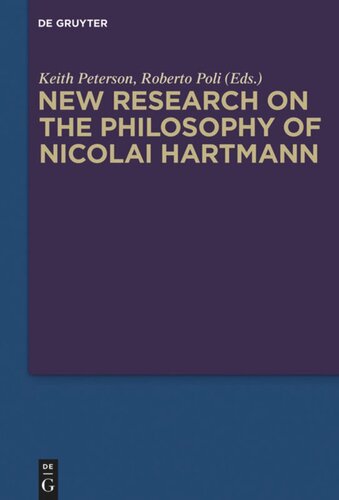

Most ebook files are in PDF format, so you can easily read them using various software such as Foxit Reader or directly on the Google Chrome browser.
Some ebook files are released by publishers in other formats such as .awz, .mobi, .epub, .fb2, etc. You may need to install specific software to read these formats on mobile/PC, such as Calibre.
Please read the tutorial at this link: https://ebookbell.com/faq
We offer FREE conversion to the popular formats you request; however, this may take some time. Therefore, right after payment, please email us, and we will try to provide the service as quickly as possible.
For some exceptional file formats or broken links (if any), please refrain from opening any disputes. Instead, email us first, and we will try to assist within a maximum of 6 hours.
EbookBell Team

0.0
0 reviewsThe imposing scope and penetrating insights of German philosopher Nicolai Hartmann’s work have received renewed interest in recent years. The Neo-Kantian turned ontological realist established a philosophical approach unique among his peers, and it provides a wealth of resources for considering contemporary philosophical problems. The chapters included in this volume examine his ethics, ontology, aesthetics, philosophy of mind, and philosophy of nature. They explore his ontology of values, autonomy and human enhancement, and law; his theory of levels of reality, space-time and geometry, the categories of temporality, causality, and “life,” the question of realism, and social ontology. Others take inspiration from his aesthetic theory, ideas about education, and his embrace of the Socratic pathos of wonder. They bring his philosophy into conversation with that of his contemporaries, including Roman Ingarden and Konrad Lorenz’s appropriation of Hartmann, as well as with the history of philosophy, including Plato’s theory of recollection, pre-Socratic philosophy, and that of his Russian teacher Nikolai Lossky. Those familiar with Hartmann’s wide-ranging systematic philosophy will benefit from these new engagements with his work, and those new to it will find them relevant to a number of current philosophical debates.